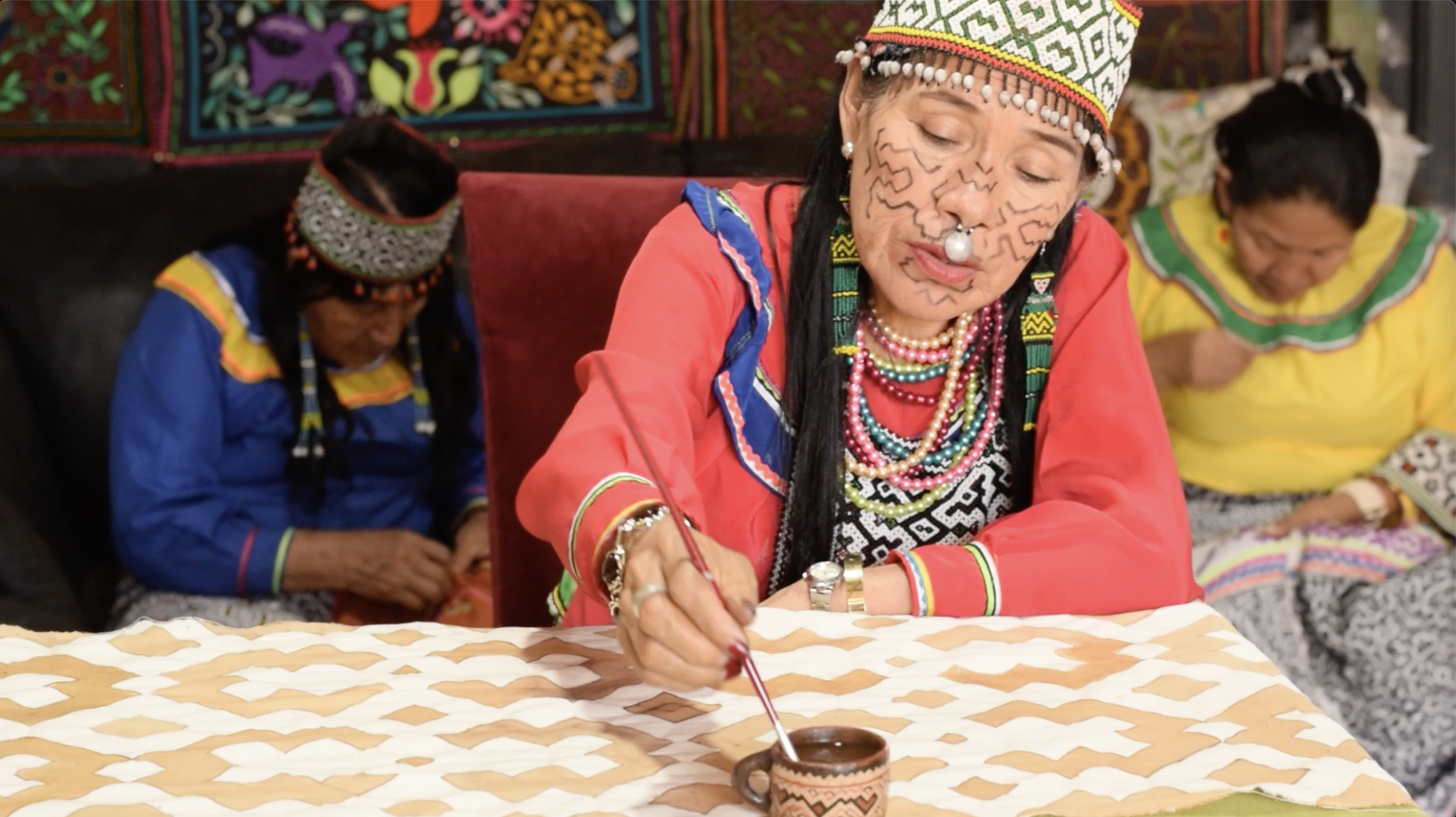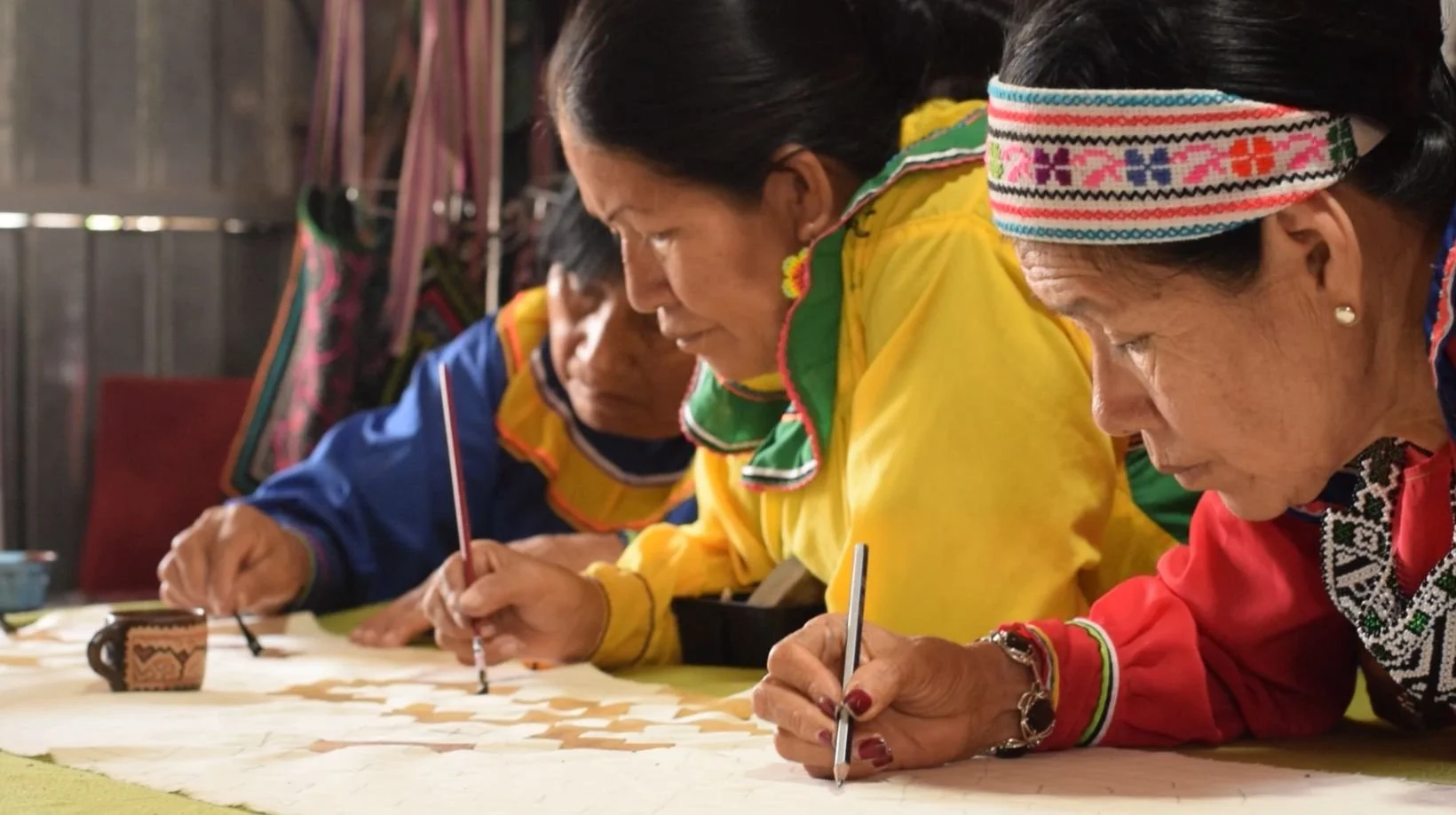SHOP
Named after the Shipibo-Konibo tribe's word for "design," our brand collaborates closely with a collective of female artists and artisans from the Peruvian Amazon. Together, we revive traditional indigenous art forms in contemporary, elegant pieces, preserving indigenous textile art through various fashion mediums. Inspired by the sacred 'kené' patterns and the natural beauty of the Amazon, our collections fuse ancestral artistry with premium materials. Each garment is one of a kind, often featuring distinctive patches of hand embroidery characterized by vibrant colors, intricate geometric patterns, and detailed threadwork. Kené Kaya is committed to sustainable practices, ensuring that every piece preserves Peru's indigenous traditions while supporting community livelihoods.
OUR ARTISANS
ARTISAN
We work together with artists from the Shipibo-Conibo tribe of the Peruvian Amazon. Co-creating the details and placement of designs of Kene embroidered and hand-painted artwork
Each art piece is not only a story of indigenous identity and style but also a testament to social justice. Our commitment to crafting against the tide of fast fashion preserves ancestral traditions while empowering women throughout our supply chain"
Shipibo-embroidery is a visual representation that captures the essence of their memories and view of the world. These pieces showcase the artistry of Shipibo-Conibo women, who skillfully use thread and needle on fabric as their medium, as well as painting pieces with natural dyes like roots and tree bark.
The geometric patterns are said to hold healing frequencies besides being a cultural tapestry that conveys the history and existence of the Shipibo community. These textiles embody cultural essence, expressing moments, and experiences deeply rooted in indigenous identity and heritage.
SUSTAINABILTY
Our brand is deeply committed to sustainability and social impact. We work closely with local communities where our artisans live, supporting social projects that uplift and empower. Our garments preserve indigenous artwork, culture, and heritage, blending them into modern, contemporary pieces. We use sustainable fabrics like organic Peruvian cotton, ensuring our materials are as eco-friendly as our methods. By releasing limited collections in small quantities, we minimize environmental impact and embrace slow fashion.













